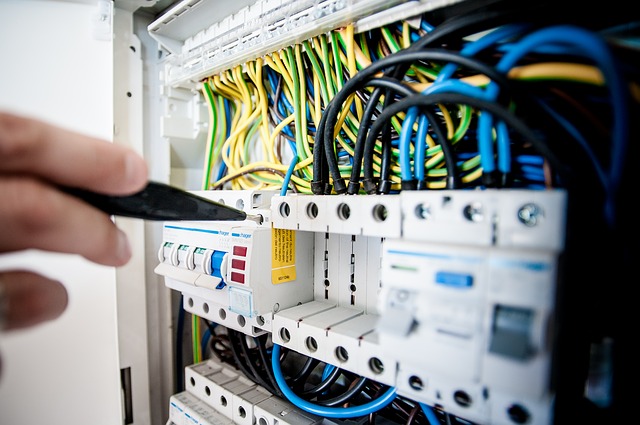Despite improved safety standards of the last few decades, electrical fires are on the rise in 2016 – according to a report released in September from Co-Op insurers. The rise is a massive 35%; accordingly, electrical fires now represent over a quarter of all residential, commercial and industrial insurance claims.

Which Devices Are Largely To Blame?
According to insurers, fault washing machines and tumble dryers are the cause of most electrical fires, but some old classics are still responsible too. Electric blankets, for example, remain a common cause. Newer devices include mobile phones and tablets, proving that new technology does not necessarily mean safe. The debacle in September over the Samsung Galaxy Note 7 proved that. E-cigarettes are also a growing concern.

Reducing Electrical Fire Risk
Although you are not responsible for your tenants’ actions, there are some steps that you can take as their landlord to reduce electrical fire risk.
Don’t buy sub-standard appliances: It’s tempting to cut costs by buying cheap kettles, toasters and other appliances from online retailers, and even cheap cables. Often, these cheaper items are shipped in from abroad and don’t match the safety standards required in EU countries. They represent a greater fire risk.
Check devices for cable damage: The rubber covering on a cable is designed to reduce sparks and electrical fires. If there is noticeable damage, replace either the cable or the item – no matter how new it is.
Regular PAT tests: You are required by law to carry out regular PAT, the test that ensures electrical appliances are safe for your tenants to use.
Advice for Student Tenants
The steps above are those that you can control as the landlord. It may be advisable to include advice documents in the contract or as a supplement for your student tenants. It should include the following:
- Use only standard phone chargers: Most people do not realise the potential dangers of cheap phone and tablet chargers. You should reiterate to your student tenants the importance of not buying cheap and low quality replacements
- Switch off electrical devices when not in use: Devices overheating (especially big appliances such as washing machines, tumble dryers and dishwashers) left on overnight increases fire risk
- Do not cover charging devices: This applies especially to mobile phones and tablets. These emit heat when charging and need cool ventilation. Too much heat and they will catch fire
- Do not leave devices charging for long periods: The typical mobile phone, tablet and laptop takes around 2-3 hours to charge. Some people are in the habit of charging their devices overnight and unplugging them the following morning. This can sometimes be to take advantage of cheaper night tariffs. If this applies to your property, either supply your student tenants with timers, or recommend they purchase some. This will save them money and reduce electrical fire risk